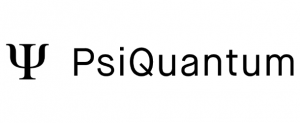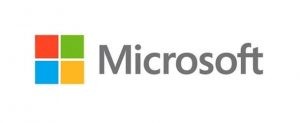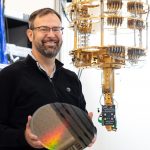Quantum News Briefs February 2: PsiQuantum will partner with DARPA to accelerate path to build world’s first utility-scale quantum computer; Quantum consortia QIC, QED-C, Q-STAR and QuIC form international council; + MORE

Quantum News Briefs February 2: PsiQuantum will partner with DARPA to accelerate path to build world’s first utility-scale quantum computer; Quantum consortia QIC, QED-C, Q-STAR and QuIC form international council; + MORE
PsiQuantum will partner with DARPA to accelerate path to build world’s first utility-scale quantum computer
 PsiQuantum recently announced that it has signed a contract with the Defense Advanced Research Projects Agency (DARPA) to perform on the Utility-Scale Quantum Computing (US2QC) program, which underpins the U.S. government’s commitment to identify companies with credible roadmaps to building a useful quantum computer in the near term. Quantum News Briefs summarizes.
PsiQuantum recently announced that it has signed a contract with the Defense Advanced Research Projects Agency (DARPA) to perform on the Utility-Scale Quantum Computing (US2QC) program, which underpins the U.S. government’s commitment to identify companies with credible roadmaps to building a useful quantum computer in the near term. Quantum News Briefs summarizes.
The partnership, which follows the recently announced collaboration between PsiQuantum and the Air Force Research Lab, is the result of a competitive applications process that included DARPA assessing candidate quantum computing companies for their ability to achieve the scaling needed for error-corrected quantum computing. After DARPA and other quantum experts across the United States government performed a thorough review of the PsiQuantum team, roadmap and critical technical milestones achieved to date, the company was selected to partner with DARPA for the US2QC program.
One of PsiQuantum’s goals for this program is to develop a deeper partnership with the United States government and enable the company to draw on DARPA’s distinguished expertise in the practical realization of advanced technology. This engagement will examine the challenges associated with building fault-tolerant quantum computers – much larger and more capable than existing, small-scale “NISQ” systems – and will evaluate the prospects for building such systems on a shorter timeframe than has been predicted for competing approaches. Click here to read complete news announcement.
Quantum consortia QIC, QED-C, Q-STAR and QuIC form international council to enable and grow the global quantum industry
Quantum Economic Development Consortium (QED-C), Quantum Industry Canada (QIC), Quantum Strategic Industry Alliance for Revolution (Q-STAR) and European Quantum Industry Consortium (QuIC) have signed a memorandum of understanding (MoU) to formally establish the International Council of Quantum Industry Associations. The council aims to strengthen communication and collaboration among the participating consortia on goals and approaches to the development of quantum technologies. Quantum News Briefs summarizes.
The consortia have been meeting informally for over a year. In April 2022, the consortia released a joint statement for World Quantum Day with the goal of finding new ways to work together to advance the greater quantum ecosystem.
“Quantum innovation and quantum markets are emerging worldwide,” said Celia Merzbacher, Executive Director of QED-C. “The formation of this council creates lines of communication and collaboration that will help our members in countries and regions with common values and with many economic linkages to develop supply chains, open markets, exchange talent and support policies that benefit the emerging industry and society.”
The current participating consortia are hopeful that the council will continue to grow. Michele Mosca, Chair of the Board of Directors for QIC said, “We look forward to working with our counterparts around the world to continue to grow and strengthen the quantum ecosystem at an international level.”
Thierry Botter, Executive Director of QuIC added, “We are at the beginning of a global technological revolution. Forming the council and working together promotes equity and reciprocity in the advancement of the international quantum ecosystem. It allows our communities to discuss areas of common interests, such as international standards, intellectual property and access to funding.” Click here to read the announcement in-entirety.
Qrypt deploys new US-designed and manufactured quantum random number generator (QRNG)
Qrypt announced the launch of its new US-developed, sourced, and hosted QRNG as part of its Quantum Entropy cloud service on February 1. Quantum News Briefs summarizes the announcement below.
This quantum entropy will both support Qrypt’s software services and is available directly to customers for use with their existing infrastructure, directly with a REST API or with integrations for HashiCorp Vault and rngd. US-based Qrypt’s novel QRNGs were developed in partnership with the Department of Energy’s Oak Ridge National Laboratory, the world’s premier research institution empowering leaders and teams to pursue breakthroughs, particularly in quantum research, in an environment characterized by operational excellence and collaboration with industry.
In the absence of actual randomness, current random number generators can be tampered with, characterized, or predicted by powerful computers used by foreign nation-states and those with access to increasingly capable machine learning tools. US companies can easily improve key security, which is based on bad randomness, through Qrypt’s Quantum Entropy service. US companies must follow suit, equipping themselves with the most secure, robust post-quantum cryptography, like the technologies offered by Qrypt, to protect our nation from foreign data hacks. Qrypt’s release of its QRNG, which is used as source random for its popular Quantum Entropy service, expands its entropy offerings, increasing its solutions for random number generation.”Quantum measurements are the only true source of random,” said Qrypt CTO Denis Mandich. “We developed and manufactured our latest Quantum Random Number Generator completely in the US, so American companies don’t need to worry about adversaries tampering in the supply chain with their entropy. If you’re interested in how our latest QRNG generates entropy – using quantum fluctuations of optical signals – reach out, and we’ll share more.” Click here to read complete announcement.
U.S. Defense Advanced Research Projects Agency (DARPA) names Microsoft as a Quantum Partner
 Julie Love, General Manager, Quantum Program Management at Microsoft, announced on January 31 that DARPA has selected Microsoft as a partner to explore scaled quantum computing in support of DARPA’s broader quantum strategies. Quantum News Briefs summarizes Love’s announcement below.
Julie Love, General Manager, Quantum Program Management at Microsoft, announced on January 31 that DARPA has selected Microsoft as a partner to explore scaled quantum computing in support of DARPA’s broader quantum strategies. Quantum News Briefs summarizes Love’s announcement below.
Love wrote, “This collaboration with DARPA will enable us to explore together the benefits of our unique approach in making the promise of quantum technologies a reality.” She explained: Microsoft founded our quantum program with scale in mind because we believe a machine will need at least one million qubits to solve a broad class of classically intractable problems. This enormous scale requirement emerged from our resource estimation research. Years ago, we built a tool to understand the hardware requirements and run times required to run various quantum applications using a variety of qubit architectures. For a quantum application to run in a matter of weeks instead of years or centuries, a machine requires upwards of one million qubits. That Resource Estimationtool is now available to anyone in Microsoft’s cloud service, Azure Quantum.
Love concluded, “The quantum computing industry is at an important inflection point—and Microsoft is starting to separate the hype from reality. We applaud DARPA’s diligence and focus in this important space. We look forward to sharing more as we collaborate with DARPA and invite readers to join the Microsoft Quantum Innovator Series to stay connected.” Click here to read Julie Love’s column with the complete DARPA announcement.
Sandra K. Helsel, Ph.D. has been researching and reporting on frontier technologies since 1990. She has her Ph.D. from the University of Arizona.



















